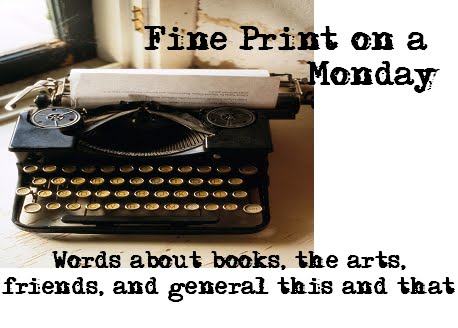Last Friday, the book group that has been meeting at LaDeDa for many years selected our titles for the coming months. Our selection process is simple, titles are submitted in a latte mug and whatever one is pulled out first is what we read. Every once in a while, I like to re-visit an old favorite, so I dropped Little Women into the mug.
When it was pulled out, there were several spontaneous facial expressions that I didn't know how to interpret. A whole new array of expressions burst forth when I grabbed a used copy and informed everyone that this simple story of the March family was over 400 pages. Even I was surprised and suggested that perhaps we might want to choose a different book. Nope. We're sticking with this one, and I'm glad.
When it was pulled out, there were several spontaneous facial expressions that I didn't know how to interpret. A whole new array of expressions burst forth when I grabbed a used copy and informed everyone that this simple story of the March family was over 400 pages. Even I was surprised and suggested that perhaps we might want to choose a different book. Nope. We're sticking with this one, and I'm glad.
I started thinking about the classic works I taught throughout the years and of all the riffs on those stories that pop up. We have Jane Austen, Beatrix Potter and others turning up as key figures, often as detective is cozy mysteries. Just go ahead and Google "Books inspired by ____________________" and see what comes up.
This tiny, tons-o-fun book parodies seventy classics by shrinking them to clever poems that suck the marrow from the original. After reading the original, I often shared the shrunken version with my students. Beowulf is one of my favorites.
Monster Grendal's tastes are plainish.
Breakfast? Just a couple Danish.
Kind of Danes is frantic, very.
Wait! Here comes the Malmo ferry
Bringing Beowulf, his neighbor
Mighty swinger with a sabre.
Hrothgar's warroirs hail the Swede
Knocking back a lot of mead.
Then when night engulf the hall
And the monster makes his call,
Beowulf with body-slam
Wrenched off his arm. Shazam!
Monster's mother finds him slain
and goes and eats another Dane.
Down her lair our hero jumps
Gives old Grendel's Dam her lumps.
Later on as King of Geats
He performed prodigiuos feats
Till he met a foe too tough
(Non-beodegradabe stuff).
And that scaly aermored dragon
Scooped him up and fixed his wagon.
Sorrow stricken, half the nation
Flocked to Beowul's cremation.
Round his pyre with drums a-mufle
Did a Nordic soft-shoe shuffle.
That sums up the story nicely.
If you're wondering why we should even bother to read the classics when there's so much else to read, here are couple reasons.....
10 Reasons You Should be Reading the Classics
1. You’ll increase your vocabulary. Whether you want to impress your in-laws, boost your SAT
scores, or deliver more effective presentations at work, it’s worth
familiarizing yourself with words that instantly reflect your intelligence.
2. While you’re at it, you’ll also improve
your social skills. A 2013 study showed that reading the classics, in
contrast with commercial fiction and even non-fiction, leads to better social
perception and emotional intelligence.
3. You’ll be reading something of value. The classics, and their typically universal themes, have
stood the test of time; these are books in which we still find characters,
experiences, emotions, and perspectives relevant today.
4. Literary references won’t go straight over
your head. You’ll be a walking
encyclopedia of major cultural references. Great for those long winter nights of trivia.
5. You can “reward” yourself with the film
version when you’re finished reading.
6. The classics provide an opportunity to
understand history and
culture in context
7. They will enrich you in
ways you didn’t expect. Classic
novels are restless creatures, trying out new forms of expression, challenging
our views on how a culture might be understood and how a life might be
packaged.
8. The classics challenge the brain… in a good
way. Linguistic functions
used by Shakespeare have been demonstrated to stretch the
brain, and researchers believe that a thorough reading of Jane Austen
9. Knowledge is power. IQ is the best predictor for job performance, educational
attainment, income, health, and longevity.
10. Literature, along with (arguably) all
forms of art, is a distinctly human form. It is by definition an exploration of our own humanity,
one of our most important tools of communication, and a force that both creates and
reflects our culture.
So, it is with great hope of experiencing all ten of the above benefits of reading the classics that I will approach 400+ pages of Louisa May Alcott's book - a book for some reason I think I know all about but have never read.
Thanks for stopping by.
So, it is with great hope of experiencing all ten of the above benefits of reading the classics that I will approach 400+ pages of Louisa May Alcott's book - a book for some reason I think I know all about but have never read.
Thanks for stopping by.


